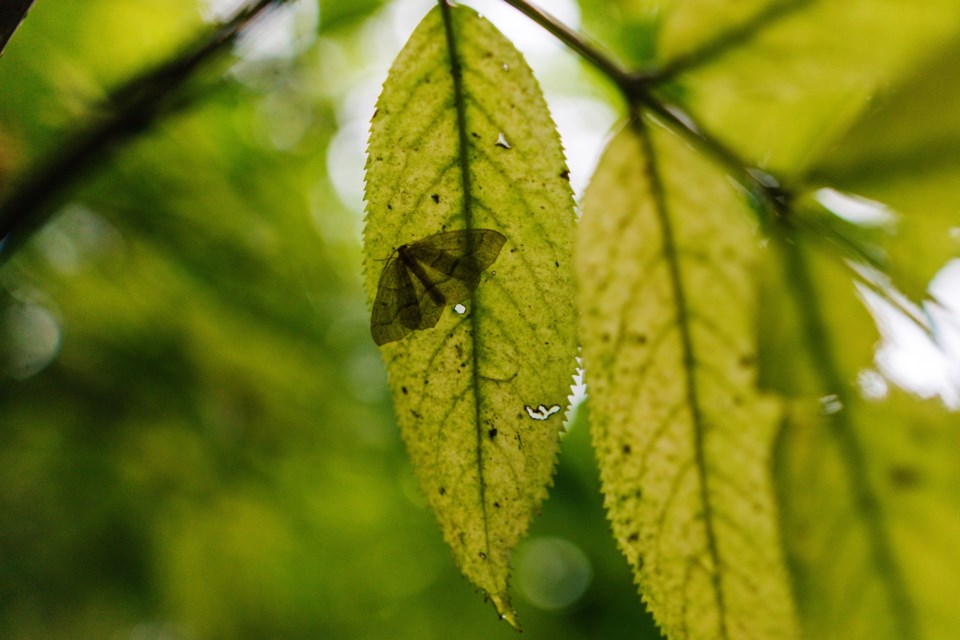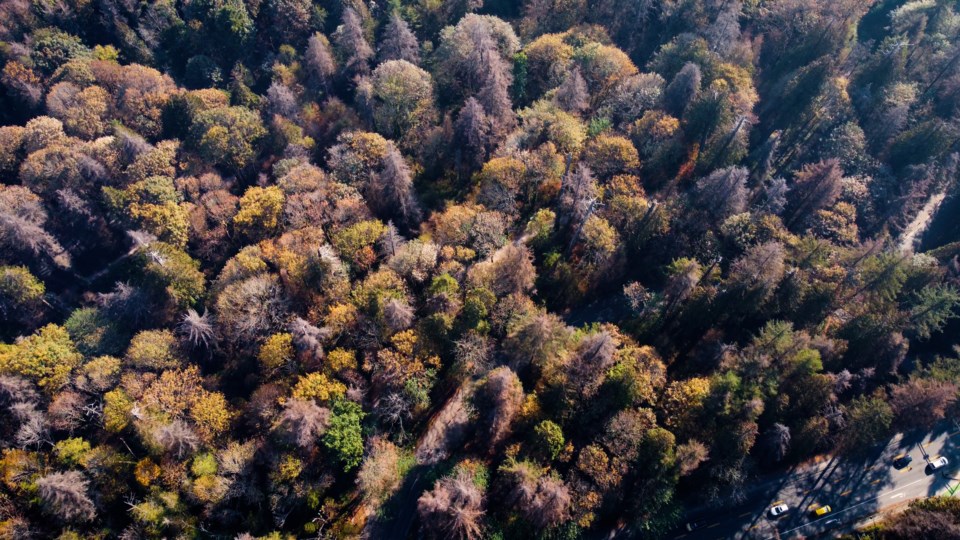Four plaintiffs who challenged the City of Vancouver and a contractor for removing thousands of trees from Stanley Park following a looper moth infestation have had their request for an injunction dismissed by a B.C. Supreme Court judge.
Hemlock looper moths tend to target coastal western hemlock trees every two decades in coastal British Columbia. The latest major infestation to hit Vancouver’s Stanley Park spanned 2019 to 2022, when the native defoliator decimated tens of thousands of trees.
In the seven months leading up to April 2024, officials responded to what they said was an imminent fire risk by removing roughly 7,000 trees from the park.
A report produced by the forestry consulting company B.A. Blackwell and Associates Ltd. — on contract from the city — suggests those trees could just be the start of a much wider tree removal operation.
In her ruling, Justice Maegan Giltrow wrote the Blackwell report “ultimately contemplates removal of up to 160,000 trees from Stanley Park over 3-5 years” — about a third of all trees in the park.
Tree removal based on ‘negligent’ report
The case brought by the four plaintiffs — all from the Stanley Park Preservation Society — claimed the contractor's report was based on flawed science, and that the “extensive and unnecessary” removal of the trees amounts to negligence.
Of the 14 citations in the report, the plaintiffs said only one was peer reviewed. They also claimed that Blackwell incorrectly applied a fire prediction software model and overestimated the fire risk of leaving the trees affected by looper moths.
Citing experts in ecology, fire behaviour and forestry, they argued that removing the trees wasn’t necessary and wasn’t safe — partly because deforestation would fragment the forest and lead to a hotter park.
The defendants, which also included the city’s Board of Parks and Recreation and park board employee Joe McLeod, countered with their own affidavit from a professor of forest and conservation sciences, which largely supported the recommendations in the Blackwell report.
The defendants also submitted that it wasn’t up to the court to decide on what expert opinion “is the ‘right’ one for Stanley Park.”

Not clear who made the decision to cut trees
Lawyers for the four plaintiffs told the court it wasn’t clear who made the decision to remove up to 160,000 trees from the park — Park Board staff, city staff or city council.
A Park Board resolution on July 10, 2023, directed staff to develop an updated risk management plan for Stanley Park. The resolution noted the park’s management plan hadn’t been updated for 15 years, and that it faced a “substantial risk” from wildfire made worse by climate change.
“Unlike previous eras, climate change, erratic weather, and extended drought periods are now routinely experienced in Vancouver,” states one section of the resolution.
While the resolution calls on Park Board staff to develop an updated risk mitigation plan — including measures to address and/or remove dead trees — it does not specifically direct staff to begin tree removal.
By September, however, staff entered into a supply agreement with Blackwell to remove 7,000 trees from the park. And in the first five months of 2024, city council approved a $16 million budget for tree removal in Stanley Park without a resolution from Park Board Commissioners, something that raised “further concern,” according to Giltrow.
The plaintiffs’ lawyers submitted that at “every step of the way the Park Board was informed and did nothing,” noted the judge in her ruling.
Described as a novel case, the plaintiffs sought an injunction from the court. They also claimed they suffered and will continue to suffer emotional and psychological harm from the tree removal, but did not seek damages.
Plaintiffs raise ‘legitimate concerns’ over lack of deliberation
Giltrow’s decision, handed down Oct. 1, acknowledged that there is merit to the idea that green spaces like Stanley Park — “the ‘jewel’ of Vancouver” — are built and maintained to benefit the mental well-being of visitors.
The judge said the plaintiffs have raised “legitimate concerns about the apparent lack of deliberative decision making by the Park Board” but rejected their argument that such a case should be settled by the B.C. Supreme Court.
“In these circumstances, a group of citizens has put their hands up and said something is amiss,” wrote Giltrow.
“It is an important role of the court to hear challenges to government action or inaction. However, the possibility of improper government action does not require this Court to establish a new private duty of care between the Public Respondents and four citizens.”
Doing so, Giltrow added, would have “serious consequences” for “the legal system and society more generally” and would create “the spectre of unlimited liability.”
At least 20,000 more large trees to be removed
Questioned over tree removal plans spanning October 2024 to April 2025, lawyers for the respondents said about 6,000 more trees will be removed.
The lawyers said the city does not have plans to remove all 160,000 trees outlined in the Blackwell report. It does, however, expect to remove about 20,000 of the largest trees whose trunks are wider than 20 centimetres.
“If they are prevented from using third-party contractors to undertake the work required, the result will be portions of the park, including roads and trails, will have to be closed,” said Giltrow in her decision.



